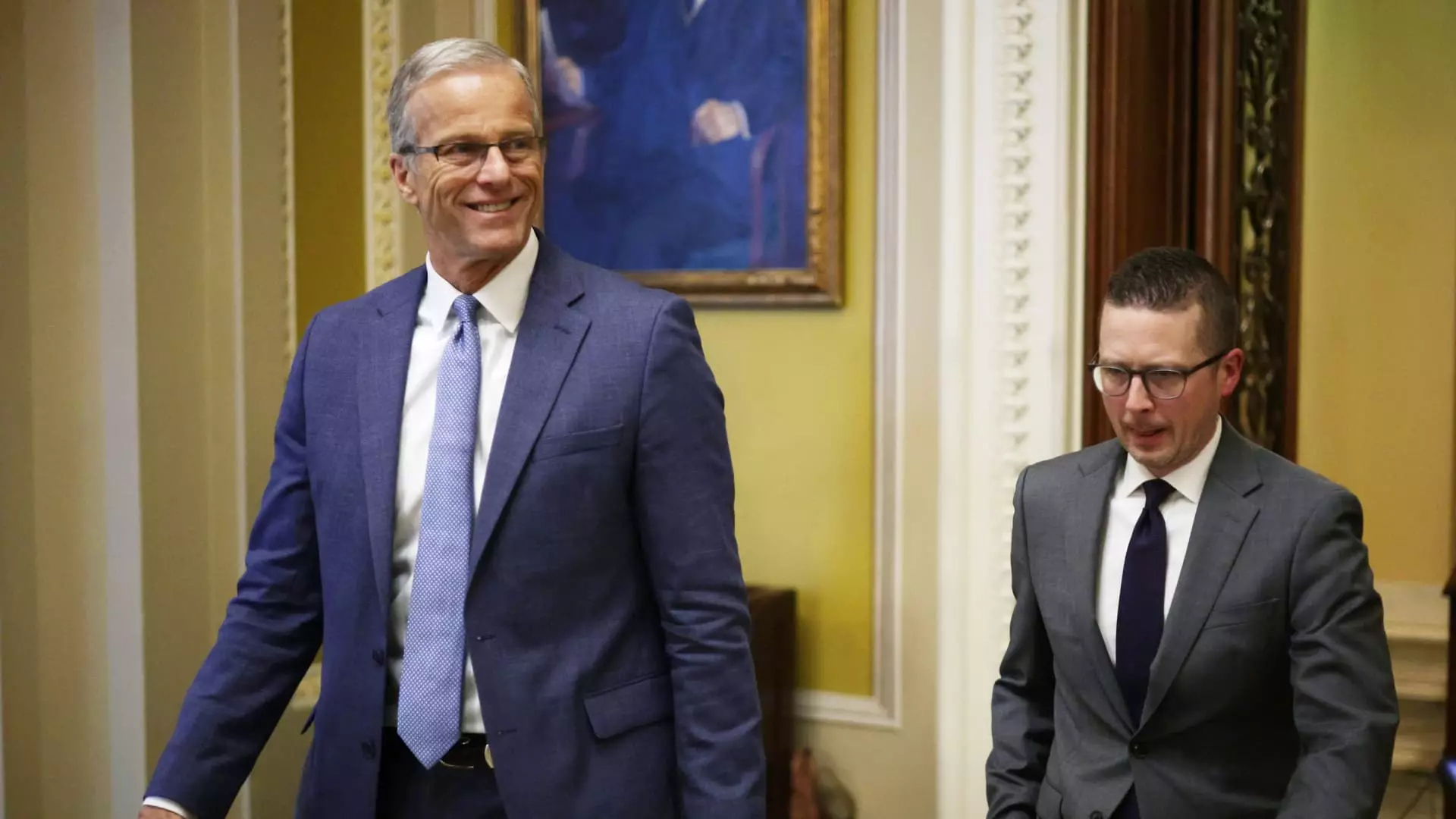The recent passage of President Trump’s expansive domestic policy bill in the Senate, while superficially a moment of political triumph, reveals superficial unity that conceals deep fissures within American governance. A cursory glance might celebrate the 51-50 vote outcome—a razor-thin victory powered by the vice president’s decisive casting—yet beneath this veneer lies a fragile, yet highly contested, coalition. The fact that three Republican senators—Thom Tillis, Rand Paul, and Susan Collins—defied the majority to oppose the bill underscores the cracks in the GOP’s unity, exposing a party divided on core fiscal and policy priorities. Such defections portend a broader resistance within the conservative caucus, challenging the myth that the bill enjoys genuine bipartisan support or robust party backing.
This Senate result, while heralded as a legislative breakthrough, essentially functions as a political mirage. It glosses over the reality that behind closed doors, influential factions and individual lawmakers are loath to embrace a bill fraught with fiscal risks and policy shifts that threaten long-term stability. Their dissent signals that the bill’s passage is less a sign of unified vision than a reflection of strategic compromise, a fleeting acknowledgment of the need to appear bipartisan while safeguarding core ideological principles. The democratic process, in this case, becomes a high-stakes theatrical performance that masks underlying disagreements, swirling in a confluence of political calculation rather than genuine consensus.
The House: A House of Uncertainty and Fractured Resolve
The bill’s journey from Senate approval to House considerations further complicates the narrative. House Speaker Mike Johnson’s narrow majority offers a precarious platform for enacting the Senate’s changes, especially as conservative members continue voicing skepticism. The tight margin leaves little room for error, and the reluctance of hard-line Republicans has already cast doubts on the bill’s future. This dynamic highlights a fundamental flaw in the process—an overreliance on party-line voting driven by ideological purity rather than pragmatic policymaking.
Furthermore, the House’s challenge is compounded by the bill’s fiscal implications, with the Congressional Budget Office estimating a staggering $3 trillion increase to the deficit over ten years. This projection not only raises questions about fiscal responsibility but underscores a broader disconnect within our political landscape—a willingness to prioritize short-term political gains over long-term economic stability. Conservative members wary of expanding spending and increasing debt are rightly skeptical, and their doubts threaten to derail what is, at face value, a carefully curated legislative victory.
Moreover, the timing adds a layer of artificial urgency. The looming July 4 deadline, pushed by President Trump and hardening partisan rhetoric, turns the legislative process into a politically charged spectacle rather than a deliberate effort to craft sound policy. This orchestrated deadline fosters an environment of rushed negotiations, which ultimately disadvantages sober deliberation and encourages vote-sabotaging maneuvers cloaked in procedural objections. House conservatives such as Rep. Chip Roy are increasingly vocal about resisting what they perceive as Senate maneuvers designed to railroad the process under the guise of patriotism and expediency.
The Myth of Bipartisanship in an Era of Deep Partisan Divisions
The entire episode underscores the fragility of bipartisan hopes in a polarized political climate. While the narrative champions the bill as a quintessential bipartisan achievement, it is, in reality, a complex compromise born out of necessity rather than genuine consensus. The record-breaking amendment marathon and behind-the-scenes negotiations highlight a legislative process driven more by tactical maneuvering than shared policy visions. Democrats, exploiting procedural votes, leverage political leverage to expose GOP vulnerabilities, turning the process into a political battleground rather than a forum for meaningful policy deliberation.
President Trump’s intensified pressure, including public calls to force a swift legislative outcome, further highlights the transactional nature of this political moment. This push for rapid passage under deadline pressures reduces policy to a secondary concern, reinforcing a cycle where political expediency trumps thoughtful governance. It’s a reflection of a broader tendency—where short-term victories are prioritized over sustainable, well-considered policies—that undermines the integrity of our legislative processes.
Ultimately, the saga of this bill reminds us that genuine bipartisanship remains elusive amid entrenched partisan divides. Instead of fostering bipartisan cooperation rooted in shared values and fiscal responsibility, current politics often produce superficial agreements designed to serve immediate political needs. The delicate dance of legislative approval, marred by partisan jockeying and strategic calculations, exposes the fragility of hopes for a more unified and responsible governance system. True progress requires more than momentary compromises; it demands a fundamental reevaluation of priorities that aligns policymaking with the long-term interests of the nation—something that remains, for now, painfully out of reach.


Leave a Reply